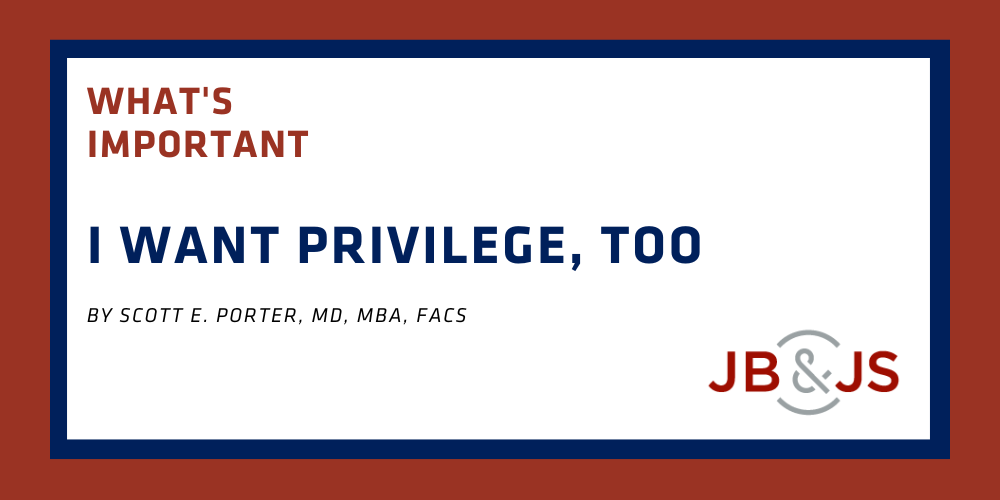What is “privilege”? This question is explored in a thought-provoking essay by Dr. Scott E. Porter in JBJS: What’s Important: I Want Privilege, Too.
“I have been very blessed in the past several years to emerge as a pseudo-leader in the diversity and equity landscape,” the author begins. “I dare not use the word ‘leader’ without qualification because I don’t want to be the nation’s orthopaedic surgery diversity problem-solver. Diversity should be everyone’s charge, and not just the charge of those of us on the diversity speaker circuit.”
In contemplating “privilege,” Dr. Porter points out that it is a word that has become deeply polarizing. But what exactly is “privilege”?
He offers this definition for consideration: “privilege is, simply, the benefit of the doubt.”
He notes that, in nearly every encounter when people meet, visual cues precede anything that is spoken. “We all evaluate these visual (or olfactory and/or auditory) cues against our own lifetime of experiences,” he explains. “If we all do it, the question then is not whether a particular characteristic or trait is seen or appreciated, but whether it engenders a positive, negative, or neutral visceral response in the person perceiving it.”
Probing the idea further, he says, “It is in this infinitely small space in time where one’s ‘privilege’ exists. Privilege is simply enjoying that, at first blush, another individual has a positive visceral response in their perceptions of you. They have given you the benefit of the doubt.”
The author offers examples of such interactions, reflecting on his own life as a Black male and calling on the reader to contemplate these and other examples—and the “benefits of the doubt” that may or may not be conferred. “This reflection should not be a defense of doing it since…we all do it. Rather, it should be a time to curiously explore when we do it, why we do it, and whether the act of doing it was harmful or helpful to ourselves or the other party.”
He looks more closely at privilege in American society, and the one diversity dimension carrying “a nearly ubiquitous and rarely challenged degree of favoritism or benefit of the doubt.” Encouraging further dialogue and reflection on the topic, Dr. Porter offers candid personal perspective on what it could mean to have such privilege.
Read the full article at JBJS.org: What’s Important: I Want Privilege, Too
Also from the JBJS “What’s Important” series:
The SOMOS E. Anthony Rankin Scholarship Program supports diversity in the field of orthopaedics by providing scholarships to gender- and racial minority students interested in orthopaedics along with the opportunity to learn about orthopaedic surgery at a leading military medical hospital. In this JBJS “What’s Important” article, 6 medical students share their experiences as the 2022 Rankin Scholars, undertaking a 2 to 4-week rotation at Walter Reed National Military Medical Center. More information about the scholarship program can be found at: SOMOS E. Anthony Rankin Scholarship Program.
More from OrthoBuzz
New Editorial on the Reporting of Race and Ethnicity Data in JBJS
OrthoJOE Podcast: Promoting Diversity in Orthopaedics and Equity in Health Care



